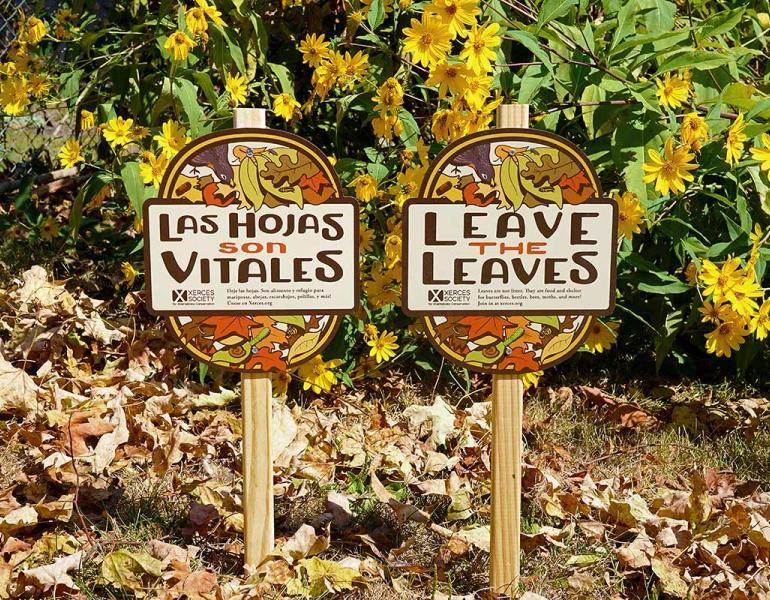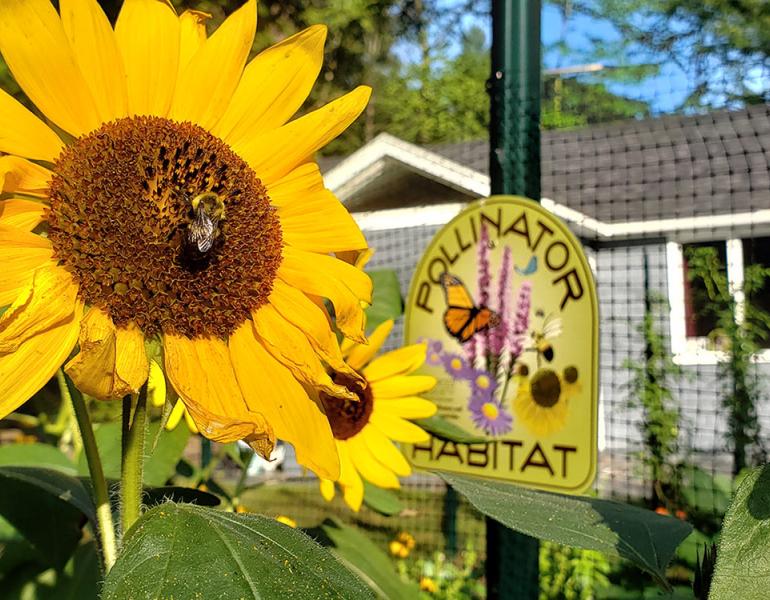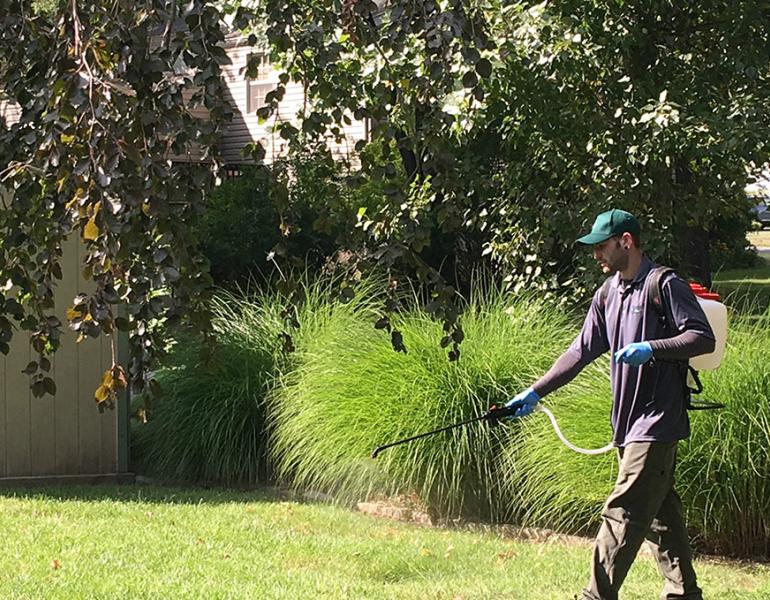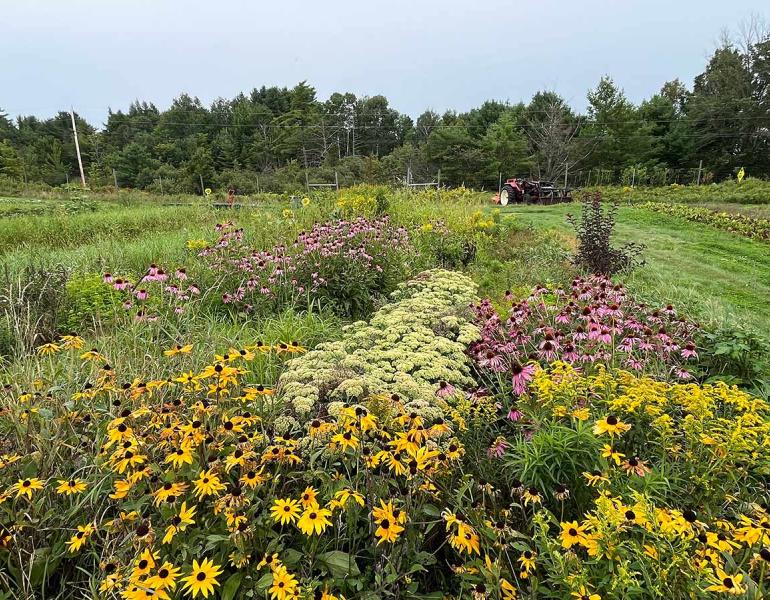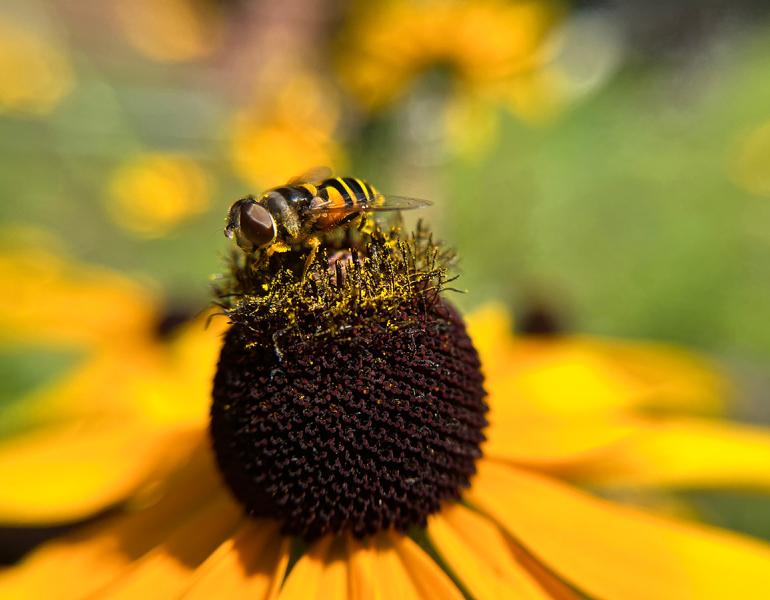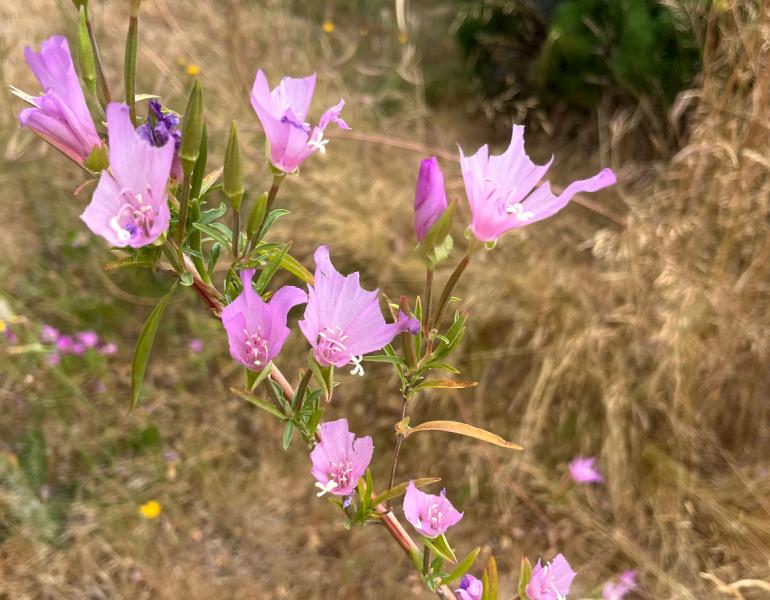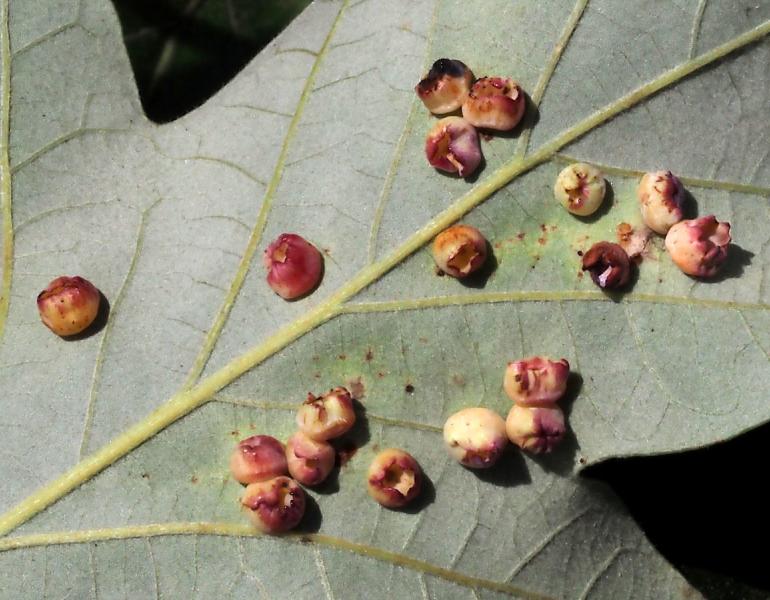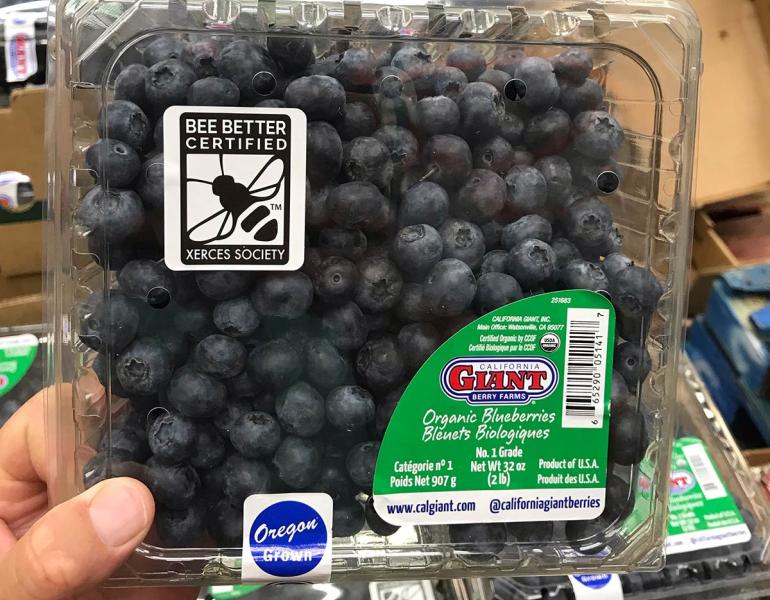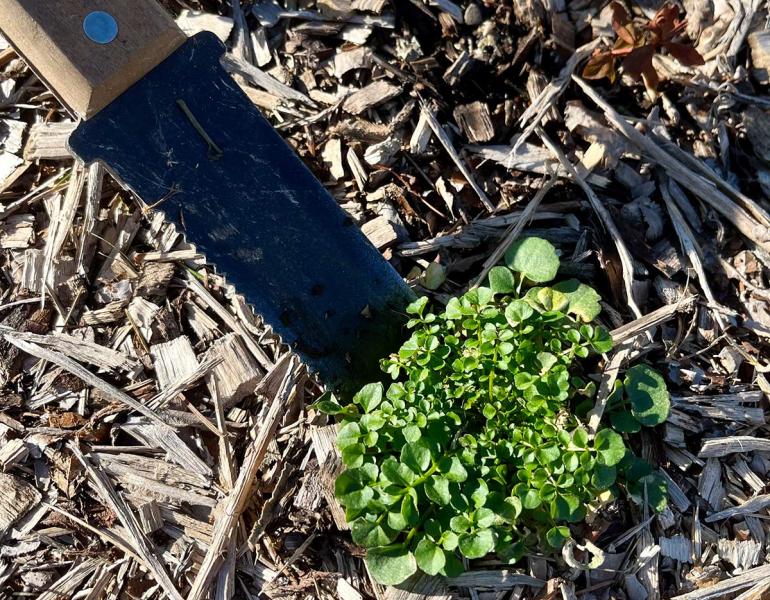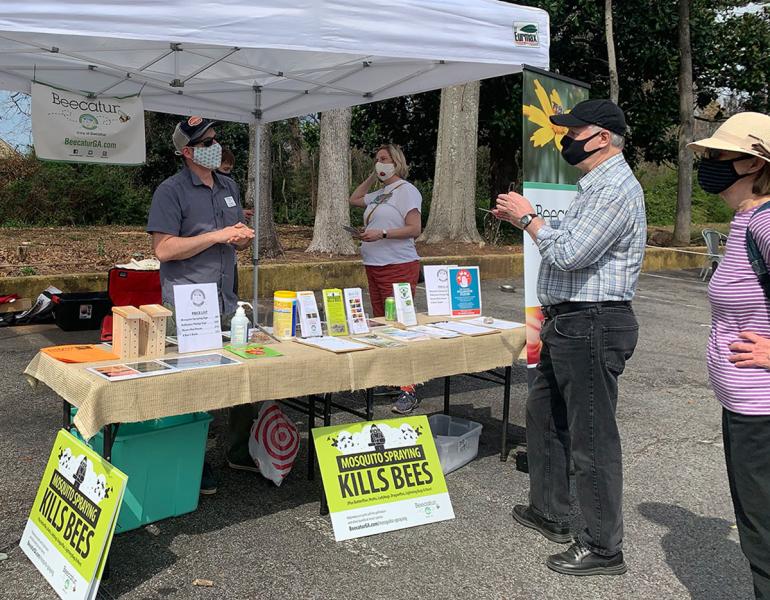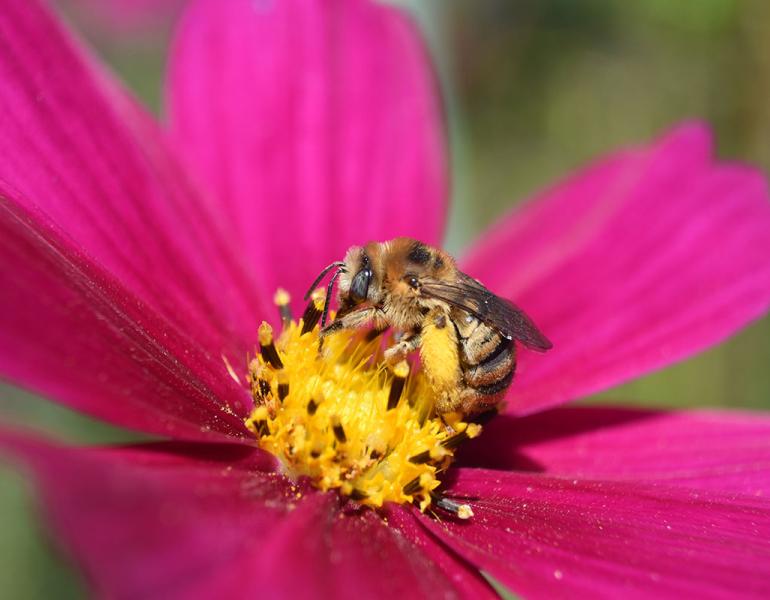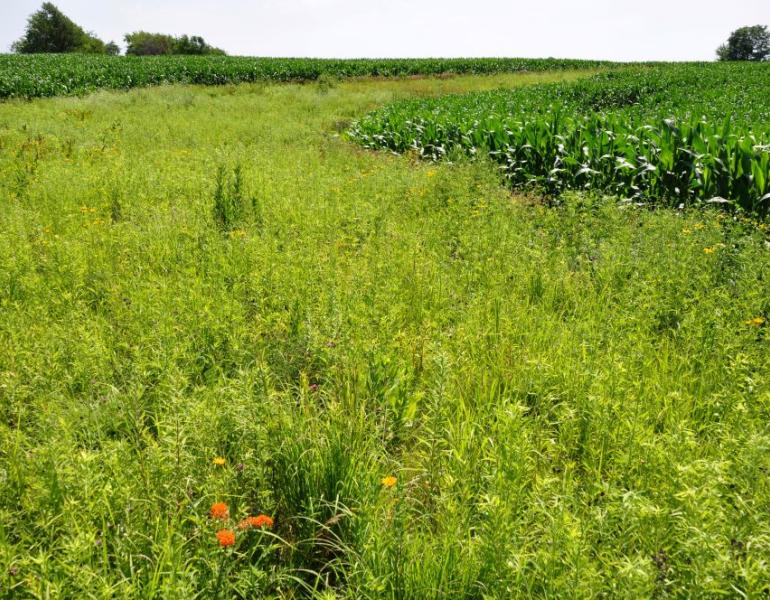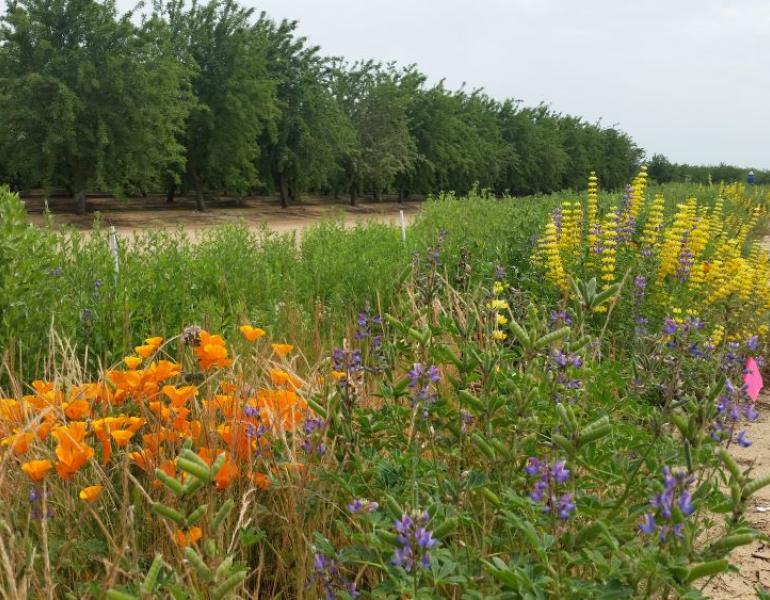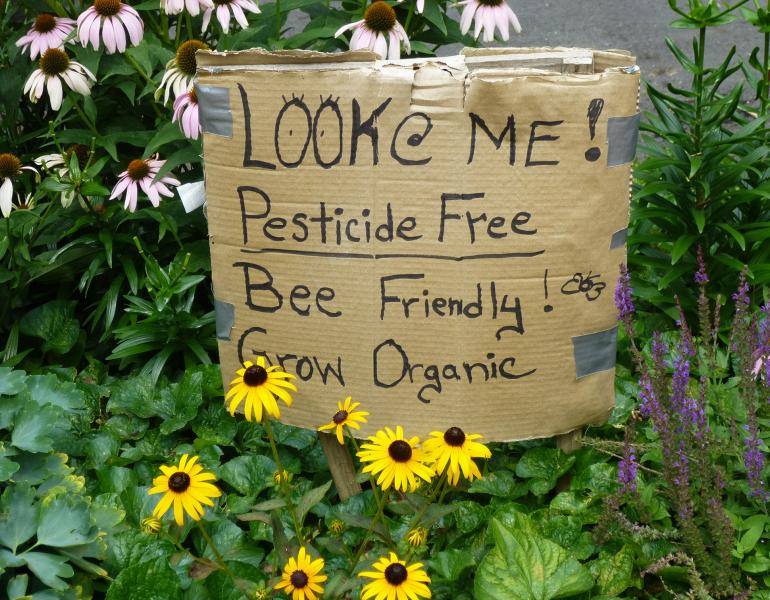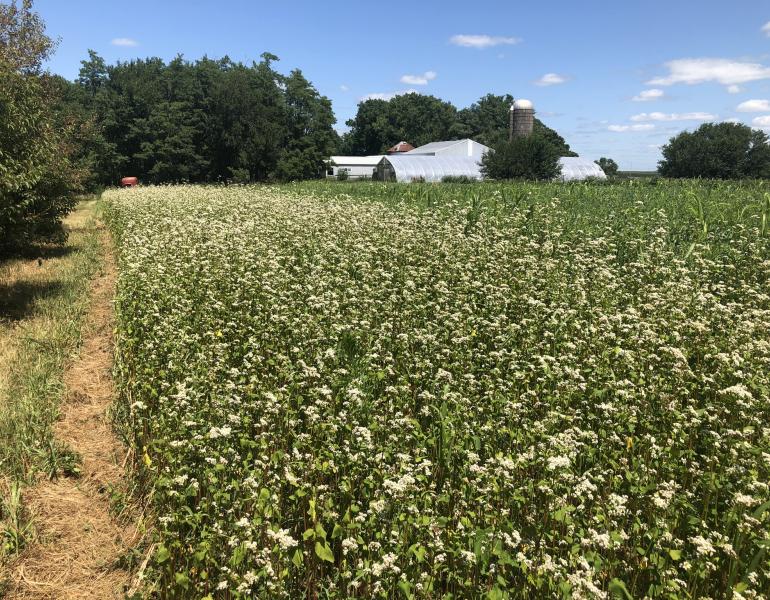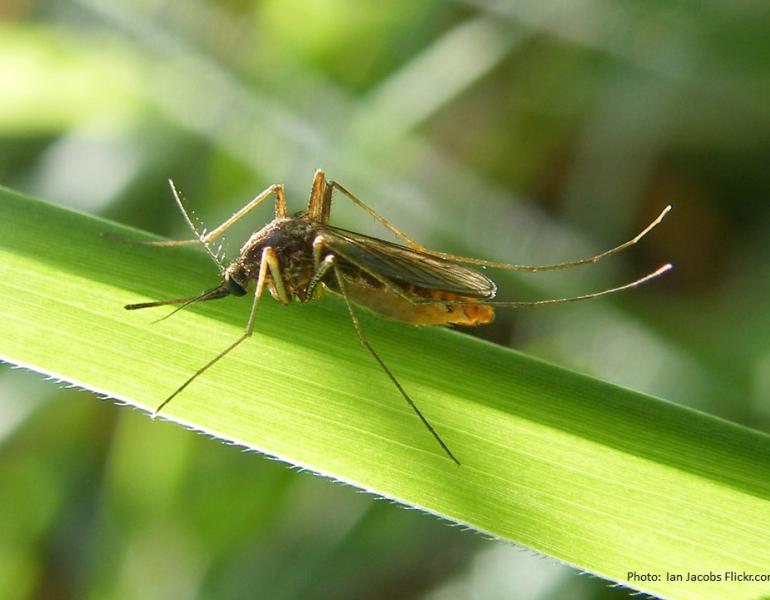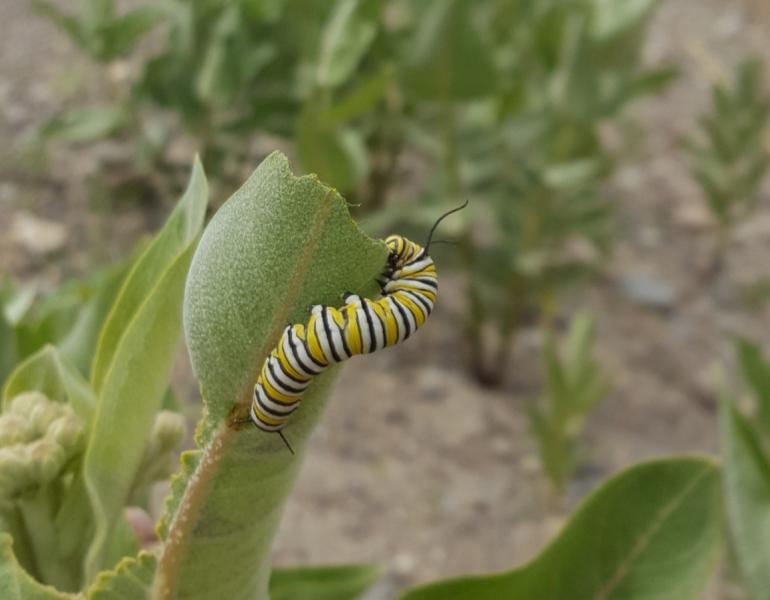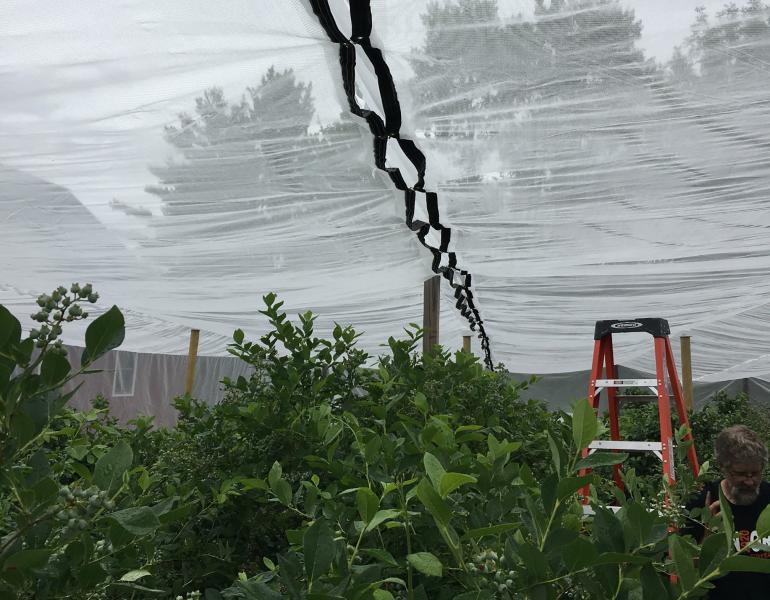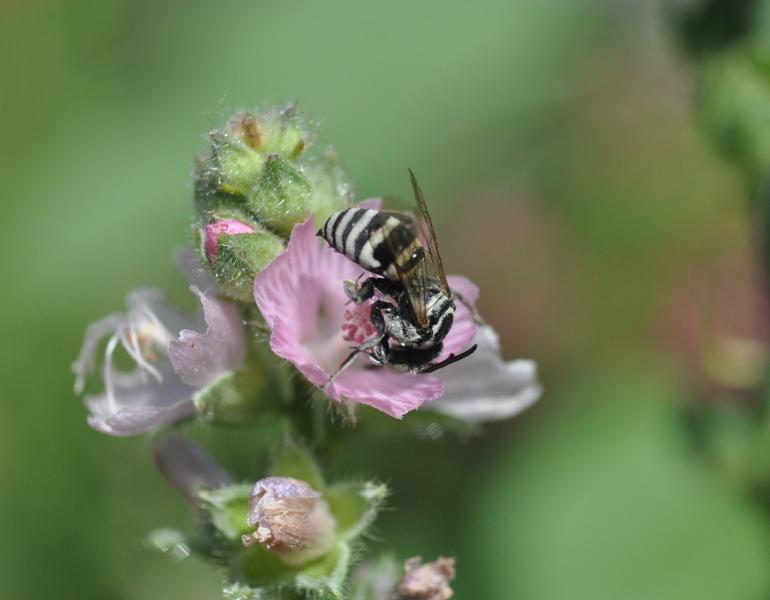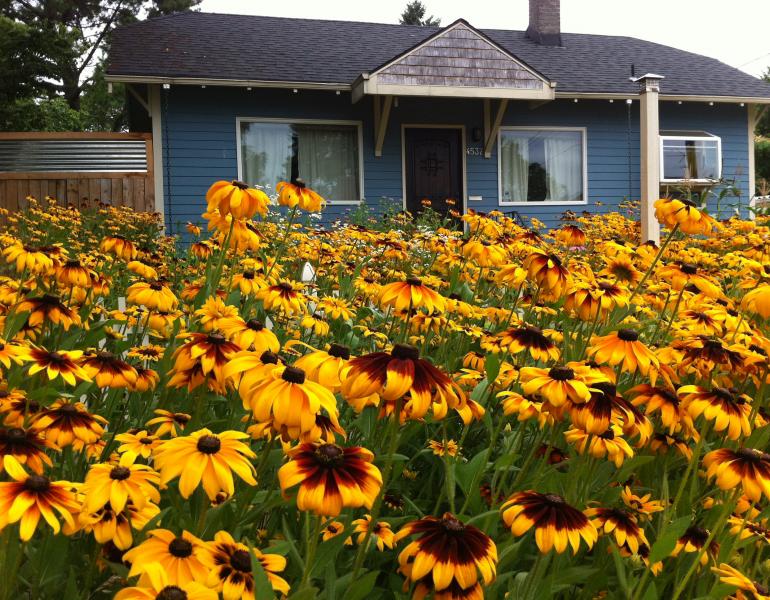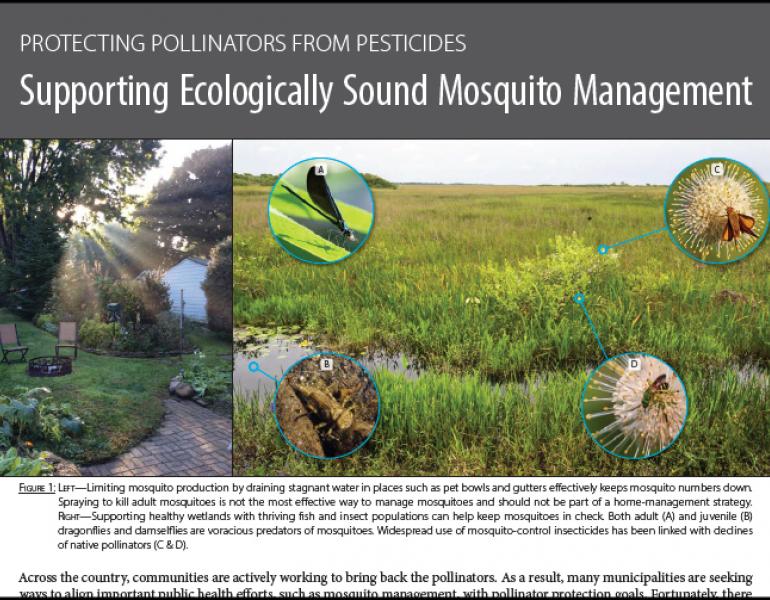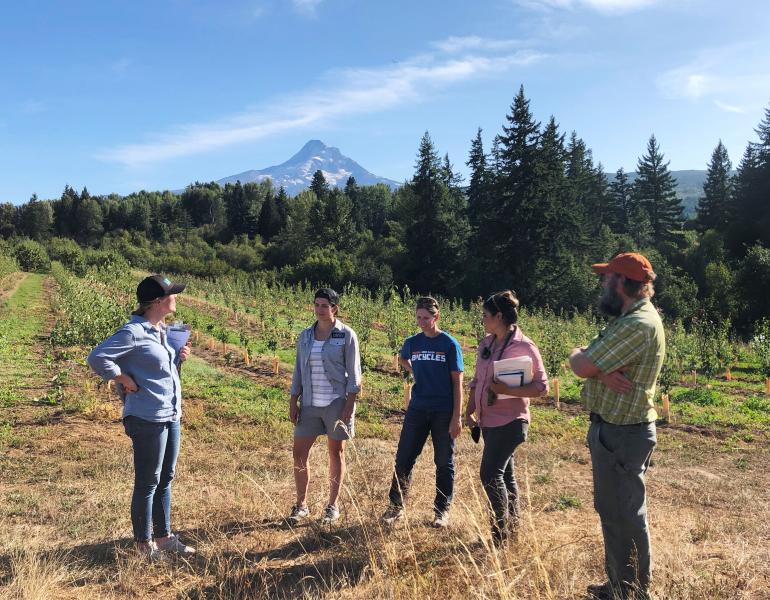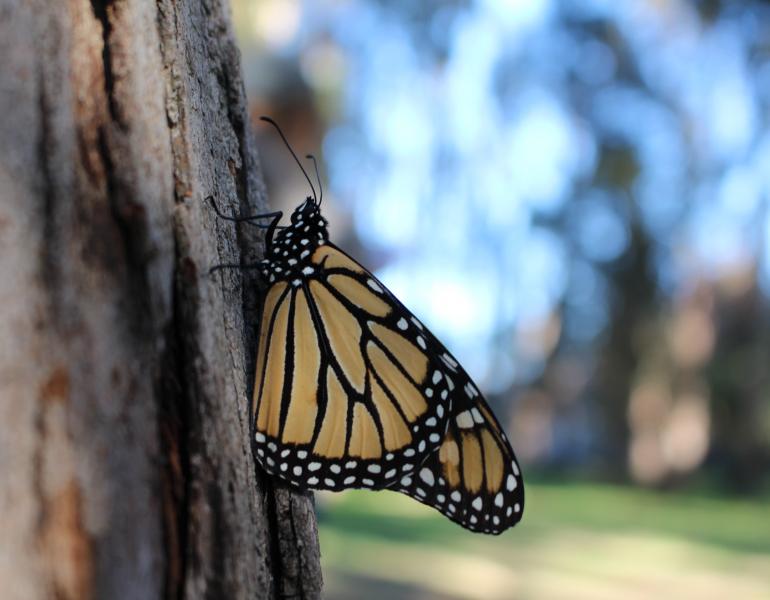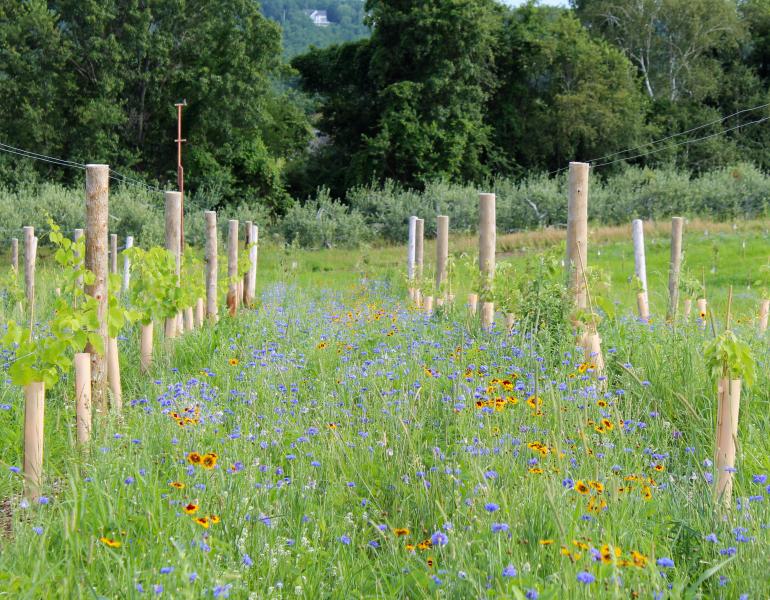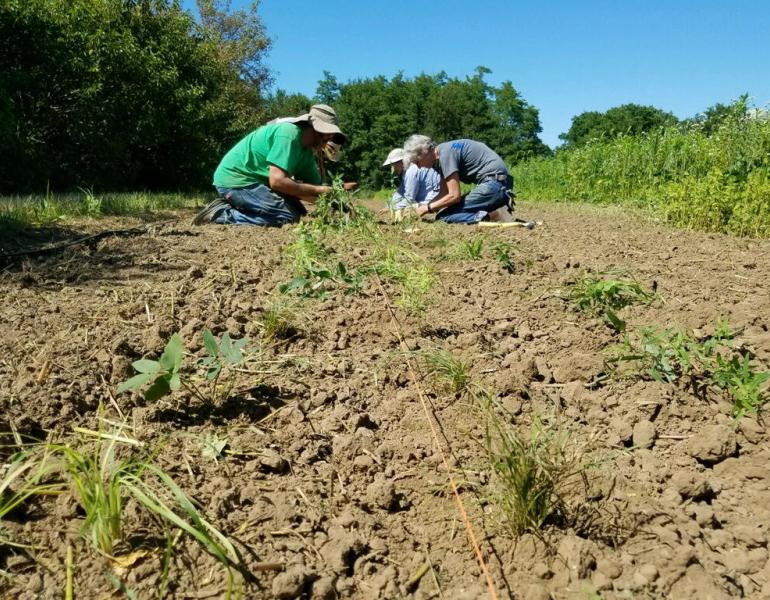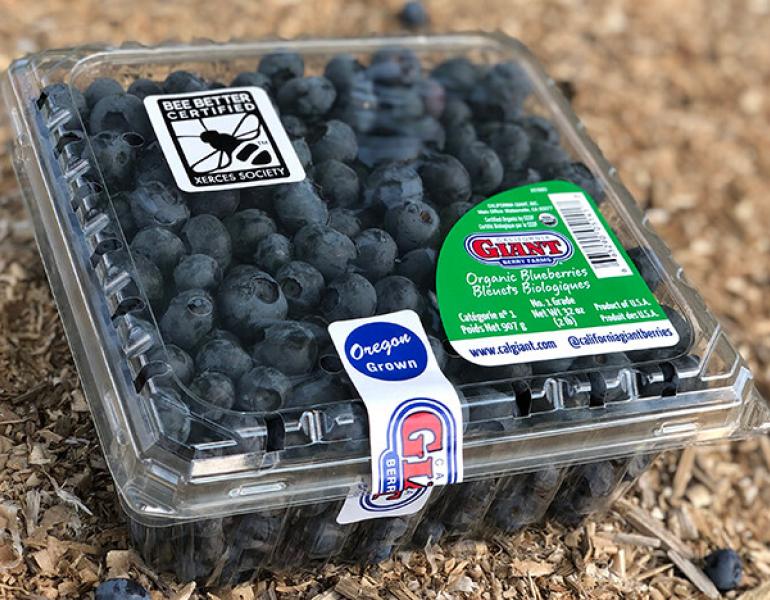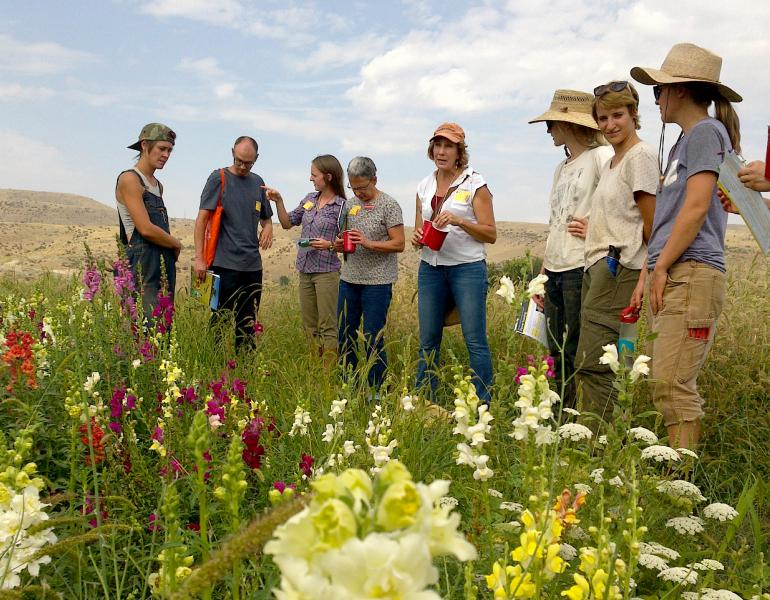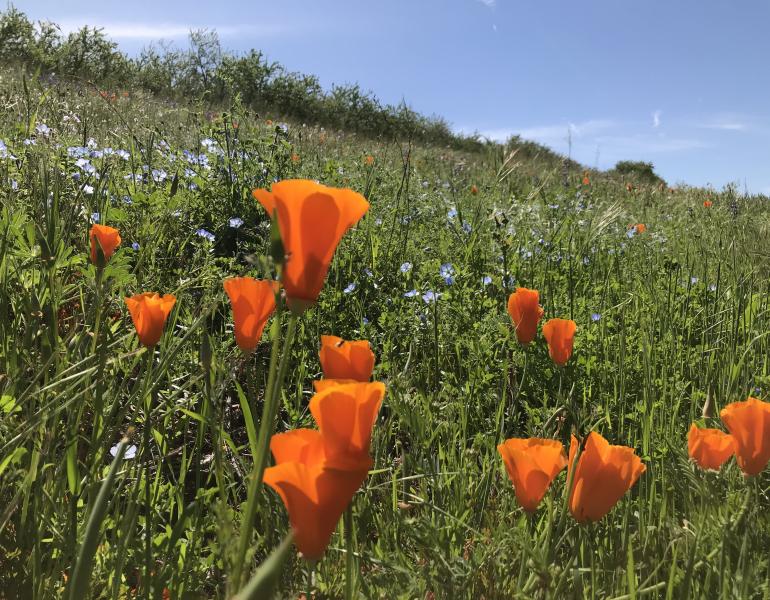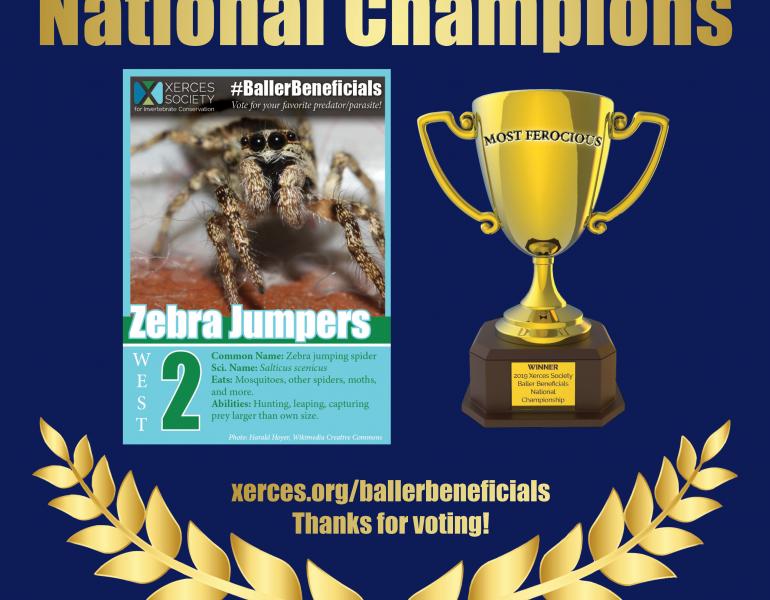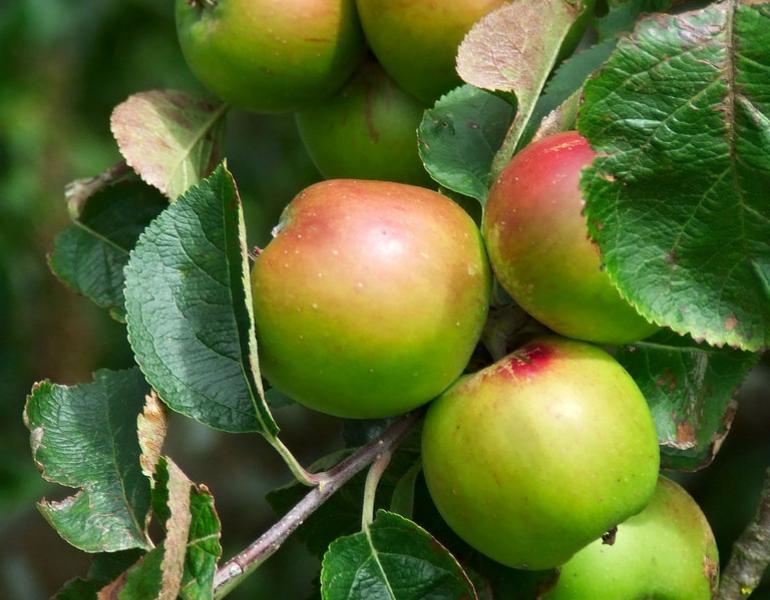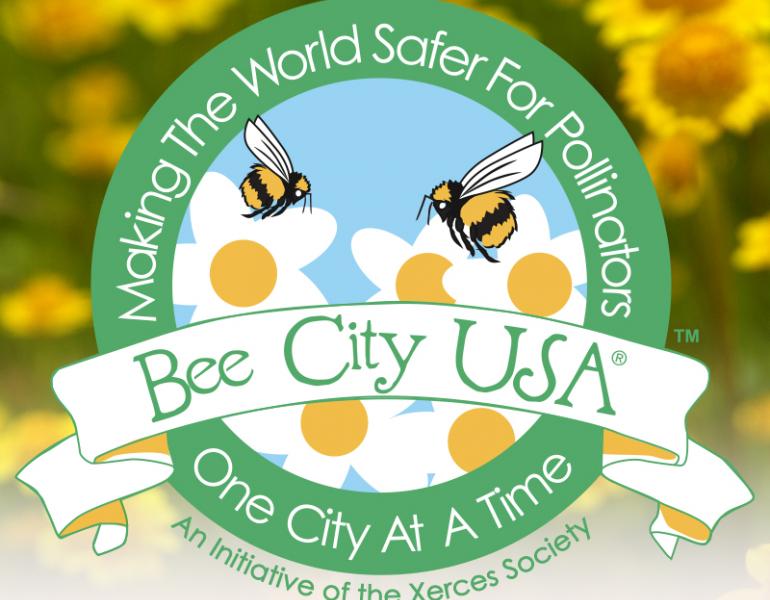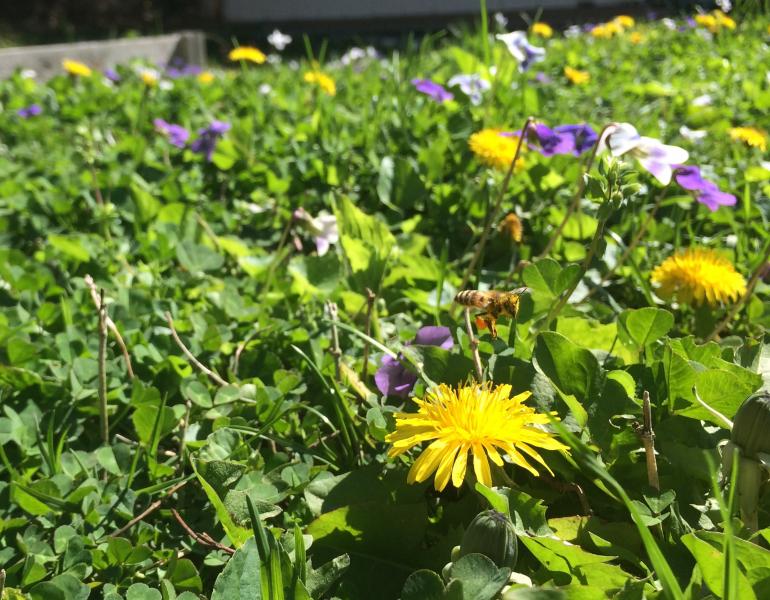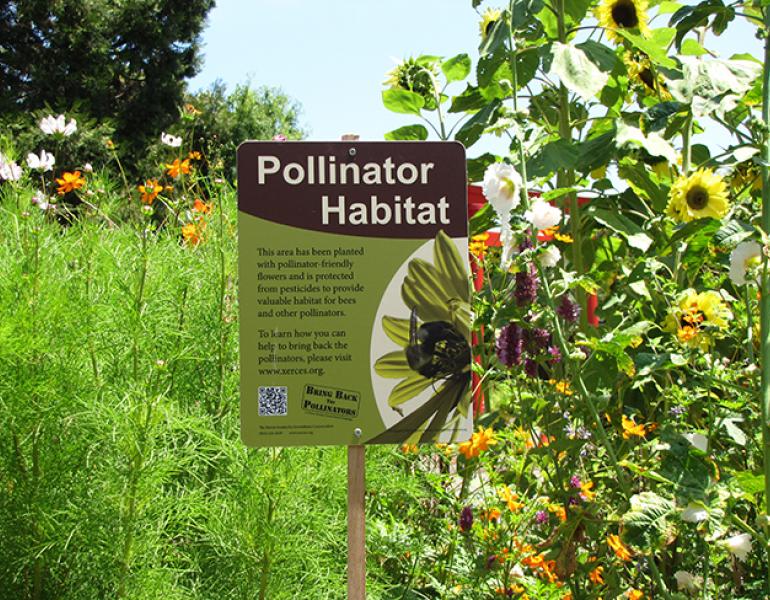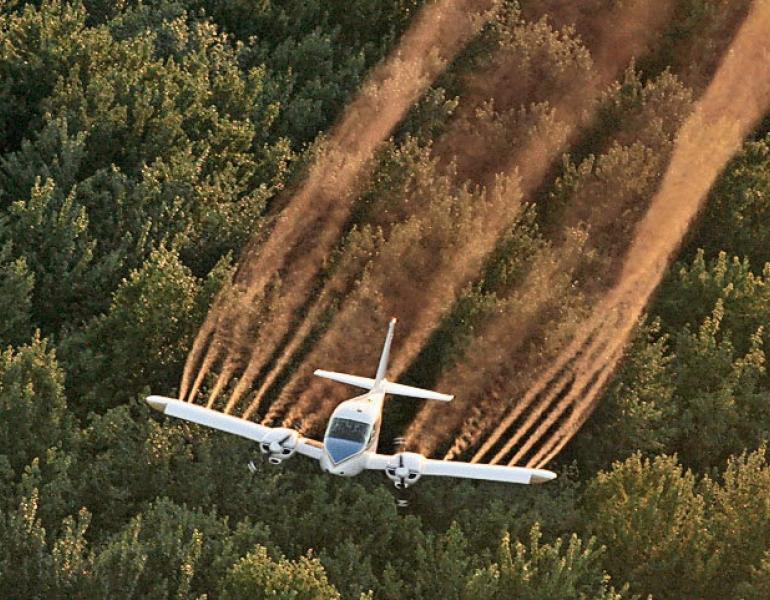Fallen leaves provide year-round habitat for all sorts of beneficial insects that eat pests in your yard!
Pesticide Alternatives
How to Make a Pollinator Garden
Gardens provide important food and shelter for pollinators. We've put together a list of tips that will help you prioritize the health and safety of these important garden inhabitants.
8 Common Pesticide Questions, Answered
You’ve probably encountered at least one of these eight common questions about pesticides in the garden. Let's check the facts!
How To Control Garden Pests While Supporting Pollinators
Learn how to set your garden up for success with integrated pest and pollinator management (IPPM)!
5 Beneficial Insects for Farms and Gardens
These helpful bugs are ready to control your garden pests for you!
Nature Notes: Snapshots of the Wildlife in our Gardens
Members of the Xerces Society’s pesticide reduction team share fun and fascinating observations of invertebrates in and around their yards and gardens.
Are My Plants Okay? How to Respond To Insects and Diseases in Trees and Shrubs
Learn how to recognize beneficial insects, and address many issues without pesticides.
More Retailers Are Requiring Produce to be Certified as Pollinator-Friendly
With two of the largest food retail companies in the US already making commitments to pollinator health, more are likely to follow!
Protect Pollinators at Home: Alternatives to Herbicides
Herbicides are designed to kill plants, but can also harm pollinators and other invertebrates. Luckily, there are other ways to remove unwanted plants.
These Bee-Safe Communities are Welcoming Back Pollinators
It takes a village to provide pollinator-safe spaces. These 8 communities are modeling the collaboration and creativity necessary to bring back declining pollinators.
Allies in Conservation: Nurseries Practicing Pollinator-Safe Pest Management
Nurseries and other plant vendors selling plants free from harmful pesticides are important allies in pollinator conservation. These inspirational nurseries are excelling at ecological pest management.
Part 2: How research about pesticide risks informs our efforts to rewild agricultural landscapes
Over the past decade, Xerces has worked with thousands of farmers and land managers to build over a million acres of habitat. Each of these projects, no matter how small, is meaningful and important to us. Our staff spend hours on the details, fine-tuning the mix of plants to suit the local conditions and support as many species as possible, determining how the site will be prepared and installed, and finding ways to protect the resulting habitat from pesticides. Last week, I shared a review of the latest research on how agricultural pesticides may impact nearby pollinator habitat. Today, I’ll talk about how we apply this research to our work at Xerces.
Part 1: How research about pesticide risks informs our efforts to rewild agricultural landscapes
Recently, we have been wrestling with questions about the costs and benefits to pollinators of installing habitat in areas that are likely to be occasionally or continuously exposed to pesticides. In this two-part blog, we’ll first dive into recent field studies on pesticide contamination of pollinator food and shelter in agricultural landscapes. This type of applied research helps to inform our conservation efforts.
Protecting New Mexico's Very Hungry Caterpillars
There is a lot to celebrate in New Mexico during Pollinator Week, literally: it is home to some of the greatest diversity of bees and butterflies in the United States. New Mexico hosts about 40% of all butterfly species and a quarter of all of the bee species found in the US (approximately 300 and 1,000 species, respectively). Emily Ruth Spindler shares how Xerces' work is expanding to protect the state's priceless invertebrate biodiversity.
How Grape Juice and Vacuums Can Help Save the World
There was a teacher at my high school who started every class with the key take-home message he wanted to be sure we all heard. Following his example, here is a message I hope you’ll take to heart: If we are to bring back pollinators and restore the biodiversity that our world needs to survive, we must curtail the excessive use of pesticides—at home, on the farm, and everywhere in between. Fortunately, people are definitely getting creative in managing the places where we live, work, and play to make them safer for everyone.
Tips for Organic Site Preparation Before You Plant
Organic site preparation is simply using methods and materials outside of the conventional options of chemical herbicides to prepare seedbeds prior to planting. Methods of organic site prep can be solarization, smother cropping, repeated cultivation, sheet mulching, and more. There are many ways to achieve good results without breaking the bank.
Mosquito Management at Home
Spring is quickly turning into summer, and with the warming temperatures comes the drone of mosquitoes in our parks and yards. Unfortunately, the insecticide sprays used by pest control companies can be harmful to a wide variety of other insects. Fortunately, there’s a much more effective way to reduce your itchy bites this summer and protect pollinators in your yard: focus on eliminating areas where mosquitoes breed.
Xerces Introduces New Searchable Systemic Insecticides Reference
The Xerces Society's new Searchable Systemic Insecticides List allows anyone to understand the dozens of insecticides currently registered in the U.S. that are designed to permeate plants from within. Systemic insecticides can render some or all of a plant toxic to insects that feed on plant tissue and are commonly used to suppress herbivorous sucking or chewing insects like aphids, caterpillars, and root nematodes. Unfortunately, systemic insecticides also harm beneficial insects.
Local Pest Challenges Spur Local Solutions in New Hampshire
Farmers in New Hampshire face challenges with pest management, made worse for berry growers by the arrival of a non-native fruit fly. Xerces' Alina Harris is working with growers, agencies, and university extension staff to find solutions that minimize pesticide use.
Ask for a Healthier World
Do you want a more bee-friendly community or a different way to control mosquitoes? Change can start with a simple ask. Asking, if done respectfully and with curiosity, can bring empowerment and strengthen community.
How to Identify and Respond to Pests at Home
Problems arise in even the most well-planned gardens, and it can be frustrating to see your plants suffering from an insect pest or disease. Learn how you can identify and respond to pests in your home garden and yard in ways that maintain the health and resilience of your local ecosystem.
Start Now To Prevent Mosquito-Borne Disease and Keep Our Pollinators Safe
The Xerces Society’s new fact sheet, Smarter Pest Management: Responding to Mosquito-Borne Disease and Protecting Pollinators, highlights ways for everyone to prevent mosquito-borne disease, with recommendations that are backed by the Centers for Disease Control and Prevention (CDC).
Support Pollinator Conservation by Reducing or Eliminating Pesticide Use in Urban Environments
Our new fact sheet, Smarter Pest Management: Pollinator Protection for Cities and Campuses, outlines key steps to reduce or eliminate pesticide use in municipal parks, campuses, and other urban greenspaces.
Pollinator Conservation Program Digest - January 2020
January's featured staff members have been working with growers in one of Oregon's major fruit-producing regions, and training conservation professionals to assess and improve habitat in Wisconsin.
Thanksgiving Count Shows Western Monarchs Need Our Help More than Ever
The western monarch population remains at a critical level. With some luck and a lot of hard work, we have hope that we can save this incredible migration.
Starting from Scratch: New Hampshire Farm Dives into Conservation Biological Control
This positive case study demonstrates the possibilities for farmers interested in supporting native pollinators and reducing or eliminating pesticide use.
Pollinator Conservation Program Digest – August 2019
August’s featured staff members conducted a successful pollinator habitat workshop in Nebraska, and have been busy building beetle banks in Iowa.
Arriving in Stores: Bee Better Certified Blueberries
In partnership with AC Foods and Oregon Tilth, we’re pleased to announce the arrival of California Giant brand Bee Better Certified organic blueberries.
Reflecting on a Multi-Year Conservation Biological Control Project
From 2015–2019, the Xerces Society brought a series of 61 day-long courses on conservation biological control to 49 states and 2,000 participants, with far-reaching results.
Pesticide-Free Gardening Tips for Earth Week and Beyond
Please consider spending Earth Week in the garden, enjoying the diversity of insects, and taking a few of the actions outlined below to simultaneously minimize pest problems and avoid the use of pesticides.
Bee Better Certified Engages the Almond Industry
With a robust set of requirements on pesticide use and the highest standards for protecting and restoring pollinator habitat of any food certification, Bee Better Certified represents a new era in biodiversity protection on farms.
Bee Better Certified: An Evolving Standard
After a year and a half of Bee Better Certified®, we have analyzed how the standards work for the many operations that are already implementing them, and have adjusted our requirements accordingly.
Baller Beneficials! The 2019 Xerces Society Division 1 Beneficial Insect Championship
The 2019 Xerces Society Division 1 Beneficial Invertebrate Championship was a wild ride, with many upsets—and, of course, at the heart of it was the opportunity to learn about a wide array of fascinating creatures.
Celebrate Invertebrates During National Apple Month
No matter how you obtain your apples—whether you pick them yourself, grab them at the grocery store, or go bobbing for them—it is important to take a moment to remember the pollinators and beneficial insects that make this delicious harvest possible.
Xerces Society + Bee City USA = A Match Made in Pollinator Heaven
Bee City USA brings a unique approach that encourages cities and college campuses across the United States to develop and implement a plan for helping pollinators.
Bee Friendlier with Your Lawncare
If you’re ready to re-think your lawn, read on for practical advice and small changes that can help support pollinators and a healthier planet.
Protecting Pollinators One Community at a Time
Pollinators need habitat that is protected from pesticides. Learn how you can encourage your local government to adopt policies that protect pollinators.
Planning Ahead for Mosquito Season
Spraying for adult mosquitoes may seem like a quick way to soothe the public’s nerves, but as a strategy for controlling them it’s a blunt and ineffective tool.

